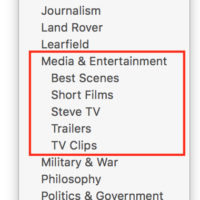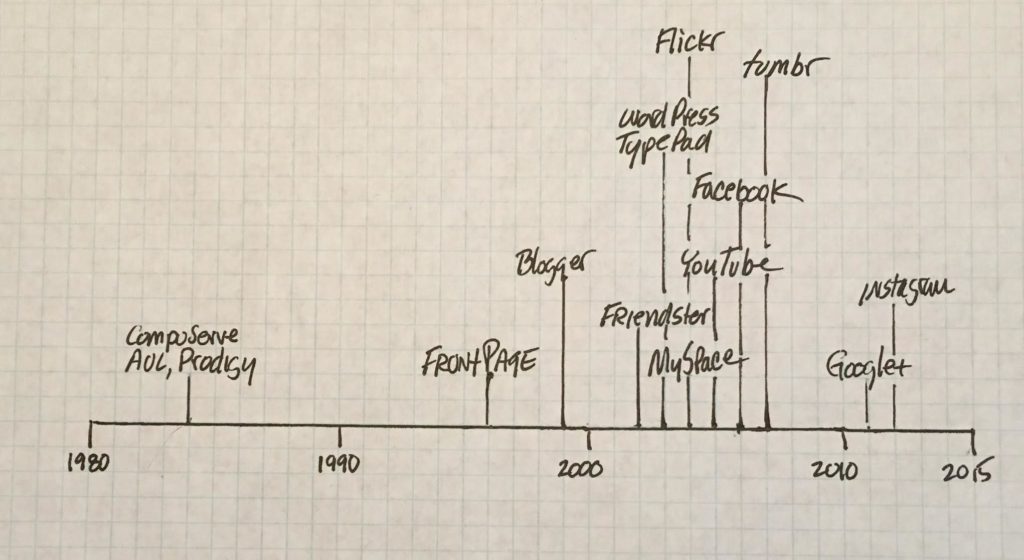A little history. I was keeping notes in a journal long before I got my first computer (1984). When I came across a good quote in a book or a line in a movie, I’d jot it down in a spiral bound notebook with the idea I could find it later. Only way to do that, however, was to page through all of the notebooks. When I got my first computer I tried making notes in a text file which was searchable but just barely.
In the late 90’s I used Microsoft FrontPage to create a “personal home page” where I parked some of this stuff. (My tagline was: “I’ve really got to start writing some of this down”) Hardly an improvement over my notebooks but I was naive enough to think someone might want to read what I wrote. I put the new stuff at the top of the page and pushed the older notes down.
As blogging software and platforms came along, I tried most of them. Radio Userland, Blogger, TypePad, Posterous and — eventually — WordPress. I don’t recall when I first encountered the concept of tagging my posts but it wasn’t until I started using WordPress that I got serious about metadata. Why I tag and how I tag in a moment, first let’s talk about categories. Continue reading


